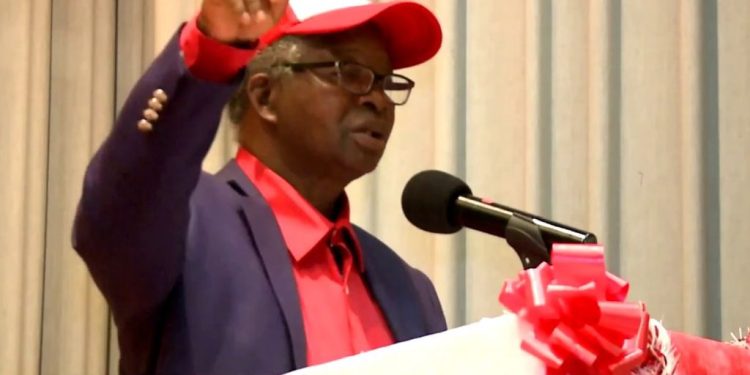By Albert David
In moments of democratic crisis, silence is complicity. Sierra Leone today stands at a perilous crossroads, where the ruling SLPP government’s increasingly undemocratic governance threatens to erode the very foundations of constitutional order. Yet, disturbingly, the opposition All People’s Congress (APC), entrusted with the solemn responsibility of safeguarding democratic norms, has retreated into the comfort of press releases and rhetorical posturing, abandoning the people to the unchecked ambitions of executive dominance.
This abdication of duty is not merely disappointing, it is dangerous. The APC’s failure to act decisively, beyond the issuance of carefully worded statements, has created a vacuum of resistance that emboldens the ruling party’s excesses. At a time when Sierra Leone’s democracy demands robust, ethical, and visible checks, the opposition has chosen timidity over courage, caution over conviction, and silence over accountability.
The Opposition’s Ethical Failure
(a) Press releases are not resistance. They are symbolic gestures, devoid of the practical force needed to counteract systemic manipulation. By limiting its engagement to statements, the APC has reduced itself to a spectator in a contest where the stakes are nothing less than the survival of democratic governance.
(b) Failure to mobilize civic power. The APC has neglected its duty to galvanize citizens, civil society, and grassroots movements into a collective defense of democratic principles. This failure has allowed the ruling SLPP to weaponize civic engagement as a performative exercise, shrinking democratic space while the opposition watches from the sidelines.
(c) Absence in international advocacy. The APC’s reluctance to take its case to international media outlets and global democratic institutions has left Sierra Leone’s plight underreported and under-defended. In an era where international scrutiny can restrain authoritarian impulses, the opposition’s silence abroad is as troubling as its passivity at home.
The All People’s Congress ineffective checks have profound consequences for Sierra Leone’s democratic trajectory:
(a) Deepening public distrust. Citizens, already disillusioned by the ruling party’s manipulations, now see an opposition unwilling to fight for them. This erodes faith not only in government but in the very idea of democratic representation.
(b) Intensifying polarization. By failing to challenge undemocratic governance, the APC allows political divisions to fester unchecked, pushing Sierra Leone closer to instability.
(c) Institutional erosion. Without effective opposition, institutions designed to balance power are reduced to hollow shells, vulnerable to executive capture.
The APC must recognize that defending democracy requires more than words, it requires action. The opposition must urgently adopt a radically professional, intellectually grounded, and ethically uncompromising approach to its role. This means:
1. Publicly confronting undemocratic governance. The APC must move beyond closed-door negotiations and speak out boldly, both domestically and through international media platforms, exposing the ruling party’s deceptive practices to the world.
2. Mobilizing civic resistance. The opposition must empower citizens, civil society, and grassroots organizations to reclaim democratic space, ensuring that reform is not dictated by one office but negotiated by all stakeholders.
3. Demanding accountability. The APC must insist on independent investigations into the manipulation of civic processes, holding both government officials and complicit bureaucrats to account.
4. International advocacy. The opposition must engage global democratic institutions, regional guarantors, and international media outlets, ensuring Sierra Leone’s democratic crisis is neither ignored nor misrepresented.
History will not forgive timidity. Sierra Leone’s democratic journey is at a critical juncture, and the opposition’s failure to act decisively risks legitimizing executive overreach as the new norm. The All People’s Congress must understand that its role is not ceremonial, it is constitutional, ethical, and existential. To remain passive is to betray the people, to betray democracy, and to betray the future of Sierra Leone.
The ruling SLPP government’s undemocratic governance is troubling, deceptive, and constitutionally suspect. But equally disturbing is the opposition’s unwillingness to rise to the occasion. Sierra Leone does not need press releases, it needs principled resistance. It does not need silence, it needs courage. It does not need spectators, it needs defenders.
The time for hesitation has passed. The APC must reclaim its role as the guardian of democratic principles, not in whispers behind closed doors, but in the full glare of public and international scrutiny. Only then can Sierra Leone hope to preserve its fragile democracy from the corrosive ambitions of unchecked power.











